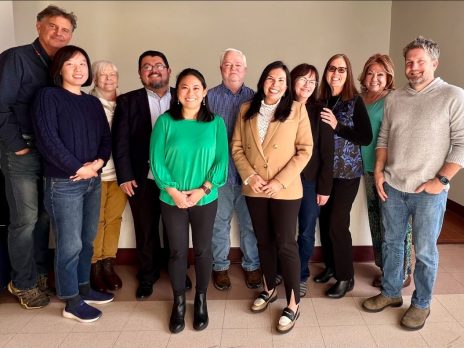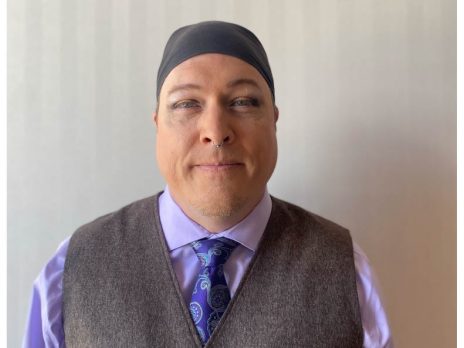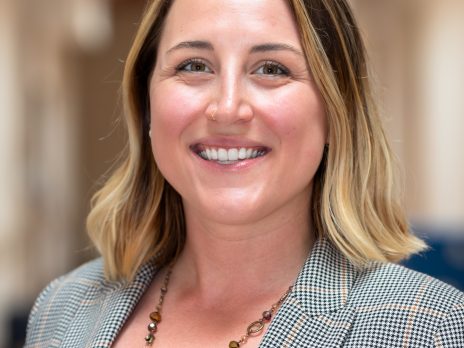Contact the Department of Educational Psychology
Meet the PhD Combined Counseling-School Psychology Program faculty at the Information Open House Click for Dates and Details
For PhD Program Information, please contact:
Handbooks
Please refer to the Combined Counseling School Psychology Doctoral Student Handbook and the Combined Doctoral Program Practicum Handbook for more information.2022-2023 Student Admission Outcomes and Other Data
Join our graduate program
Graduate quicklinks
Future students
Visit the College of Education's Future Students page to get helpful links for both undergraduate and graduate students.Programs of Study
For a complete listing of all programs of study, please visit the Graduate College Programs of Study page.Combined Counseling/School Psychology, Doctor of Philosophy
This plan prepares students to function as well-rounded generalists with a strong foundation in both counseling psychology and school psychology. Students engage in substantive training utilizing a scientist-practitioner model integrating psychological theory, research, and practice. The combined approach promotes the optimal development of individuals, families, groups, and environmental systems using empirically supported, culturally sensitive interventions that include assessment and diagnosis, interdisciplinary teamwork, relatively brief intervention approaches, prevention, consultation, outcome evaluation, career-development, and ethical decision-making, in a broad array of settings including schools, universities, integrated healthcare, community mental health, correctional facilities, and independent practice. We believe that this core is best realized using a scientist-practitioner training model that includes a systematic analysis of human behavior, careful applications of best practice, and a methodical evaluation of the effectiveness of these applications.
The program is organized to emphasize general preparation as counseling/school psychologists through:
- integration of theory, research, and practice of health service psychology
- ethical decision making and commitment to professional standards of practice
- multicultural awareness, knowledge, and skills with particular emphasis on working with peoples in the rural, Southwestern United States (e.g. American Indians, Latinas/os)
- application of health service psychology theory, research, and practice concepts in training, supervision, and consultation
This program is accredited by the Council for the Accreditation of Educator Preparation (CAEP)
This program is accredited by the American Psychological Association (APA)
Requirements Accordion Open
To receive a Doctor of Philosophy Degree (PhD) at Northern Arizona University, you must complete a planned group of courses, from one or more disciplines, ranging from at least 60 - 109 units of graduate-level courses. Most plans require research, a dissertation, and comprehensive exams. All plans have residency requirements regarding time spent on the Flagstaff campus engaged in full-time study.
The full policy can be viewed here.
Overview Accordion Closed
In addition to University Requirements:
- Complete individual plan requirements.
- At least three years of full-time equivalent coursework beyond the master's degree
- Two consecutive semesters (Fall and Spring) of full-time residency
- The completion of a one-year internship
| Minimum Units for Completion | 123 |
| Additional Admission Requirements | Required |
| Dissertation | Dissertation is required. |
| Comprehensive Exam | Comprehensive Exam is required. |
| Oral Defense | Oral Defense is required. |
| Fieldwork Experience/Internship | Required |
| Research | Individualized research is required. |
| Licensure | This program may lead to licensure. |
Purpose Statement
This plan prepares students to function as well-rounded generalists with a strong foundation in both counseling psychology and school psychology. Students engage in substantive training utilizing a scientist-practitioner model integrating psychological theory, research, and practice. The combined approach promotes the optimal development of individuals, families, groups, and environmental ...systems using empirically supported, culturally sensitive interventions that include assessment and diagnosis, interdisciplinary teamwork, relatively brief intervention approaches, prevention, consultation, outcome evaluation, career-development, and ethical decision-making, in a broad array of settings including schools, universities, integrated healthcare, community mental health, correctional facilities, and independent practice. We believe that this core is best realized using a scientist-practitioner training model that includes a systematic analysis of human behavior, careful applications of best practice, and a methodical evaluation of the effectiveness of these applications.
The program is organized to emphasize general preparation as counseling/school psychologists through:
- integration of theory, research, and practice of health service psychology
- ethical decision making and commitment to professional standards of practice
- multicultural awareness, knowledge, and skills with particular emphasis on working with peoples in the rural, Southwestern United States (e.g. American Indians, Latinas/os)
- application of health service psychology theory, research, and practice concepts in training, supervision, and consultation
Student Learning Outcomes
- Graduates will demonstrate ethical behavior and a commitment to professional standards of practice, including multicultural awareness, knowledge, skills, and social justice principles:
- graduates will demonstrate ethical behavior that adheres to professional standards and legal guidelines for psychologists.
- graduates will demonstrate skills in self-assessment of competence and self-care.
- graduates will demonstrate competent delivery of psychological services to diverse populations, particularly those located in the rural Southwest.
- graduates will demonstrate effective social justice advocacy methods.
- Graduates will demonstrate entry-level practice skills and strong identity as psychologists.
- graduates will demonstrate evidence-based assessment, diagnosis, and treatment skills.
- graduates will apply consultation and collaboration skills in interdisciplinary settings, taking into account the unique needs of systems located in the rural Southwest.
- graduates will demonstrate supervision knowledge and skills.
- graduates will demonstrate critical thinking about issues and practices central to professional psychology and regularly participate in professional conferences and workshops.
- Graduates will effectively apply scientific theory and research methods to the practice of Counseling and School Psychology.
- graduates will apply critical thinking and analytical skills to evaluate existing research for use in psychological practice.
- graduates will demonstrate ability to evaluate the effectiveness of treatment approaches.
- graduates will generate research that advances the knowledge and practice of psychology.
Details Accordion Closed
Graduate Admission Information
The NAU graduate online application is required for all programs. Admission to many graduate programs is on a competitive basis, and programs may have higher standards than those established by the Graduate College.
Admission requirements include the following:- Transcripts.
- Undergraduate degree from a regionally accredited institution with a 3.0 GPA on a 4.0 scale ("A" = 4.0), or the equivalent.
Visit the NAU Graduate Admissions website for additional information about graduate school application deadlines, eligibility for study, and admissions policies.
Ready to apply? Begin your application now.International applicants have additional admission requirements. Please see the International Graduate Admissions Policy.
Additional Admission Requirements
Individual program admission requirements over and above admission to NAU are required.
- GRE® revised General Test for applicants with a GPA lower than 3.00. If you have a cumulative GPA of less than 3.00, you are required to submit official Graduate Record Examination (GRE) General Test scores on the aptitude portion (verbal and quantitative) of the GRE taken within the past six years. Scores, if applicable, must be received by application deadline for admission consideration.
- 3 letters of recommendation with at least two from faculty
- completion of bachelor’s degree in psychology, education, or closely-related field prior to enrolling in the program; or a master’s degree in counseling or psychology; or educational specialist (Ed.S.) degree in school psychology prior to enrolling in the program
- responses to specific essay questions
- interview
- Note: Students admitted with a bachelor’s or master’s degree who do not have the prerequisites below will be expected to take these courses early in their programs:
- Group Counseling/Group Dynamics
- Human or Lifespan Development
- Graduate or upper-level Undergraduate courses:
- Psychological or Educational Statistics
- Applied Behavior Management
- Research Methods
- Special Education
Doctoral Requirements
This doctoral degree requires 123 units distributed as follows:
- Psychological Foundations: 21 units
- Counseling/School Psychology Specialization: 75 units
- Research Block: 21 units
- Electives: 6 units
Take the following 123 units:
Psychological Foundations (21 units)
Counseling/School Psychology Specialization (75 units)
- EPS 590, EPS 601, EPS 604, EPS 607, EPS 620, EPS 621, EPS 622, EPS 660, EPS 664, EPS 669, EPS 670, EPS 673, EPS 674, EPS 675, EPS 678, EPS 681 EPS 690, EPS 692, EPS 737, EPS 738 (64 units)
- EPS 700, EPS 700, EPS 700 (Topics in Health Service Psychology, 1 unit each (3 units)
- Select from the following: (6 units)
- Doctoral Internship (2 units)
Research Block (21 units)
- EPS 625, EPS 725, EPS 726, EPS 767 (12 units)
- EPS 799 for the research, writing, and oral defense of an approved dissertation. Please note that you may end up taking more than the 9 units of dissertation credit you can count toward your degree because you must enroll for it each time while you are working on your dissertation. (9 units)
Electives (6 units)
- Electives with advisor approval
Additional Information
Please be aware that the necessary coursework for this plan is only available at Northern Arizona University-Flagstaff.
For more information about residency and other requirements that pertain to this degree, see the Doctoral Requirements Policy.
Be aware that some courses may have prerequisites that you must also successfully complete. For prerequisite information, click on the course or see your advisor.
- Program Fee Information
Program fees are established by the Arizona Board of Regents (ABOR). A program fee has been approved for this program. See program fee details. Program fees are subject to change and updated July 1 for the next academic year.
Fall 2025 Admission Application Deadline (application process opens on August 1, 2024):
- December 1, 2024 (all applications)
- November 15, 2024 (for Presidential Fellowship consideration)
To see the current degree details please view the Catalog. This program was intentionally designed to lead to licensure or certification in the state of Arizona. For information regarding how the curricular requirements for this degree program align to licensure or certification requirements in other states, see https://nau.edu/compliance-and-authorization/professional-licensure-by-state/. GRE®️ revised General Test – Applicants with a cumulative GPA of less than 3.0 are required to submit official Graduate Record Examination (GRE) General Test scores on the aptitude portion (verbal and quantitative) of the GRE taken within the past six years. Applicants with a cumulative GPA higher than 3.0 have the option to submit GRE scores, if desired. GRE scores must be received by the application deadline for admission.Accreditation status Accordion Closed
Application Deadlines Accordion Closed
Application deadlines for Educational Psychology (EPS) programs
| Program | Site | Application deadlines | Semester next cohort begins |
|---|---|---|---|
| PhD Combined Counseling/School Psychology | Flagstaff | December 1 (all applications) November 15 (for those wishing to be considered for the Presidential Fellowship) | Fall 2025 |
| EdS School Psychology | Flagstaff | January 1, 2025 | Fall 2025 |
| EdS School Psychology | North Valley (Phoenix) | January 1, 2025 | Fall 2025 |
| MA Clinical Mental Health Counseling | Flagstaff | January 1, 2025 | Fall 2025 |
| MA Clinical Mental Health Counseling | North Valley (Phoenix) | February 15, 2025 | Fall 2025 |
| MA Clinical Mental Health Counseling | Tucson | February 15, 2025 | Fall 2025 |
| MA Clinical Mental Health Counseling | Yuma | July 31, 2024 April 1, 2025 | Fall 2024 Fall 2025 |
| MEd Counseling - School Counseling | Flagstaff | January 1, 2025 | Fall 2025 |
| MEd Counseling - School Counseling | North Valley (Phoenix) | February 15, 2025 | Fall 2025 |
| MEd Counseling - School Counseling | Tucson | February 15, 2025 | Fall 2025 |
| MEd Counseling-Student Affairs | Flagstaff | January 1, 2025 (priority deadline) Extended Deadline of April 1, 2025 | Fall 2025 |
| M.Ed. Human Relations | Online & All Campuses | Rolling Admission | |
| Applied Human Behavior | Online; Glendale Community College, Mesa Community College, South Mountain Community College | Rolling Admission |
Application process Accordion Closed
Admission Deadlines
Completed application files are reviewed and admission decisions are made during one cycle each year. All application materials must be submitted to the Graduate College online application by the posted application due date to be reviewed for entrance in the subsequent academic year. ***Admission decisions are made by the first week of March and students receive notification of this decision electronically. It is the student’s responsibility to ensure that their application file is complete. Incomplete files are not be reviewed. ***The Office of the President at NAU has a special initiative to attract outstanding doctoral students with specific research interests. This initiative offers a generous fellowship during the individual’s graduate studies at NAU. Individuals who would like to be considered for this Research Fellowship will be required to apply for the program by November 15th. Applications received by the November 15 date will be reviewed for consideration for this fellowship.Admission Application Requirements
- NAU Graduate Online application is required for all programs. Details on admission requirements are included in the online application.
- GRE®️ revised General Test - Applicants with a cumulative GPA less then 3.0 are required to submit official Graduate Record Examination (GRE) General Test scores on the aptitude portion (verbal and quantitative) taken within the past six years. Applicants with a cumulative GPA higher than 3.0 have the option to submit GRE scores, if desired. GRE scores must be received by the application deadline for admission.
- Completion of bachelor’s degree from a regionally accredited institution in psychology, education, or closely-related field; or a Master’s or Ed.S. degree in Counseling or Psychology
- Transcripts
- Grade Point Average (GPA) of 3.00 (scale is 4.00 = "A"), or the equivalent.
- 3 letters of recommendation with at least two from faculty
- Responses to specific essay questions
- Curriculum Vitae or Resume
- Interview
- For details on graduate admission policies, please visit the Graduate Admissions Policy
- International applicants have additional admission requirements. Please see the International Graduate Admissions Policy
- Graduate Level Courses:
- Group Counseling/Group Dynamics
- Human or Lifespan development
- Graduate or upper level Undergraduate Courses:
- Psychological or Educational Statistics
- Applied Behavior Management
- Research Methods
- Special Education
Application Review Process
The materials in the applicant's file are evaluated by faculty using an objective, multi-criteria system. Points are assigned for each applicant using the following weighted percentages associated with each criteria:- 50% Academic Aptitude for Graduate Study GRE scores and GPA,
- 20% Essay Responses (autobiographical and professional interest questions),
- 5% Work Related Experiences (relevant paid and volunteer work),
- 10% Potential to Contribute to Profession and Program (professional activities and letters of recommendation),
- 15% Goodness of Fit to the Program (areas of focus congruence, fit to College of Education mission, and professional characteristics)
Requirements for Admitted Students
Individuals who are offered admission and accept the program offer must begin the program during the subsequent summer or fall semester. In general, individuals unable to begin at this time must re-apply to the program. Deferred enrollment is offered in rare circumstances. The EPS Doctoral Steering committee will consider each request for deferred enrollment individually. Arizona state law requires that personnel who engage with minors or vulnerable adult populations have an IVP Fingerprint Clearance Card from the Arizona Department of Public Safety. That requirement applies to graduate students in practical psychology experiences as well. Admitted students will need the Identity Verified Fingerprint Clearance Card (IVP card) by the start of the fall semester. You may request a packet directly from DPS by either calling (602) 223-2279 or faxing your request to (602) 223-2947. Office hours are Monday through Friday from 8:00 a.m. to 5:00 p.m. If you are in-state you may complete the online application and get digital fingerprints at a contracted Field Print site within Arizona. The link to the agency that provides the fingerprint clearance is: http://www.azdps.gov/Services/Fingerprint/Program Costs Accordion Closed
Tuition costs are updated routinely by the university and posted here. University fees for technology, health, recreation, etc. vary by campus.
Program fees are established by the Arizona Board of Regents (ABOR). A program fee has been approved for this program. See program fee details. Program fees are subject to change and updated July 1 for the next academic year.
Program of Study Accordion Closed
Prerequisites
Please be aware that some courses may have prerequisites that you must also take. Course prerequisites are listed on the Program of Study form. Students may also review the online catalog for selected courses where prerequisites are required. Please check with the department or a faculty adviser if you have questions regarding prerequisites. Students who do not have the prerequisites below will be expected to take these early in their programs of study by taking classes in one of the counseling or school psychology master-level programs:- Graduate Level Courses:
- Group Counseling/Group Dynamics
- Human or Lifespan development
- Graduate or upper level Undergraduate Courses:
- Psychological or Educational Statistics
- Applied Behavior Management
- Research Methods
- Special Education
Notice regarding School Psychology Certification/Licensure
Students who wish to meet the requirements for school-based certification/licensure must either meet the requirements of the Ed.S. degree in school psychology OR complete a doctoral internship in a school-based setting.Related Forms and Websites
When completing or revising the POS, the following documents may be useful:- Combined PhD Recommended Sequence of Courses - provides the year/semester recommended sequence of courses for the Combined Counseling/School Psychology PhD Program
- Recommended Sequence of Courses with MA or EdS - provides the year/semester recommended sequence of courses for students with a MA in Clinical Mental Health Counseling or EdS in School Psychology degree
- Recommended Sequence of Courses with Post-baccalaureate Odd-Year Fall Admission - This is an accelerated 5-year sequence but there is also a 6-year option
- Recommended Sequence of Courses with Post-baccalaureate Even-Year Fall Admission - This is an accelerated 5-year sequence but there is also a 6-year option
- Recommended Sequence of Courses with Post-baccalaureate Odd-Year Fall Admission - This is a 6-year plan but a more accelerated 5-year sequence plan is available
- Recommended Sequence of Courses with Post-baccalaureate Even-Year Fall Admission - This is a 6-year plan but a more accelerated 5-year sequence plan is available
- Recommended Sequence with MA in CMHC or EdS in School Psychology Even-Year Fall Admission
- Recommended Sequence with MA in CMHC or EdS in School Psychology Odd-Year Fall Admission
- EPS Course Offerings by Semester - provides an overview of which courses are typically offered each term
- Program of Study Work Sheet - useful for translating the program of studies into a semester by semester plan
- Combined Counseling/School Psychology, PHD Academic Catalog Listing - provides a list of required courses with links to course descriptions
- Academic Catalog Policies - transfer credit, timelines, doctoral requirements, residency, and other policies
Professional Codes of Ethics and Licensure Guidelines Accordion Closed
Ethical Codes
Licensure Guidelines
- Arizona: State of Arizona Board of Psychologists Examiners
- Other States and General Licensing Information: Association of State and Provincial Psychology Boards
Combined Counseling/School Psychology PhD Program Faculty Accordion Closed
Left to Right: P. Kolodinsky, J. Lee, L. Gaddis, C. Calderon, A. Kennedy, R. Horn, C. Keene, S. Abercrombie, M. Cota, K. Kalas, S. Haberstroh
Current Doctoral Students Accordion Closed
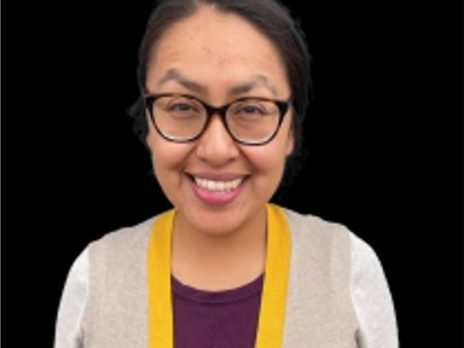
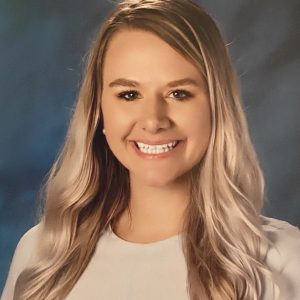


Doctoral Student Graduates Accordion Closed



Jade Heffern, Ph.D.

Wei Luo, Ph.D.

Vesna Pepic, B.S.

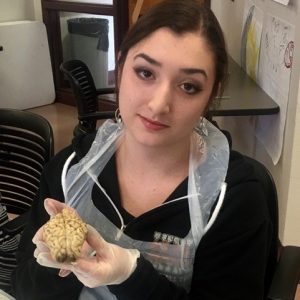
Doctoral Student Organization (DSO) Accordion Closed
Program Highlights Accordion Closed
- Melissa Wheeler, Combined Counseling/School Ph.D. students selected for the second cohort of Rising Graduate Scholars from Diverse: Issues in Higher Education.
- Neshay Mall and Melissa Wheeler, doctoral students in combined counseling/school psychology are named C-CART Scholars.
- Yolanda Garcia, associate professor in EPS at NAU serves as 2020-22 President of the Division 45 Executive Committee.
- Yolanda Garcia, associate professor in EPS co-authored a study on Development and Validation of a Community Assessment Survey for Diverse Rural Family Caregivers of People with Alzheimer Disease and Related Dementias.
- Julie Baldwin (MPI) and EPS faculty Ramona Mellott (MPI), Co-Investigators Shane Haberstroh, Chesleigh Keene, and other NAU faculty receive grant to develop graduate certificate titled Culturally-Centered Addictions Research Training (C-CART) for health professionals focused on substance use disorders in underserved communities.
- Melissa Wheeler, doctoral student in the combined counseling/school psychology, received the 2020 American Psychological Association Division (APA) 45 Joseph E. Trimble and Jewell Horvat Award.
- Yolanda Garcia, associate professor in EPS and others conduct study on health equity among ethnic and rural caregivers of people with ADRD.
- Marca McCallie, doctoral student in psychology, co-founded Sage Home residential treatment center in 2017 to assist people in recovery keep their families intact.
- Yolanda Garcia, associate professor in EPS and co-investigator on the NAU researchers study effects of COVID-19, health disparities on caregivers of people with ADRD.
- Chesleigh Keene, assistant professor in EPS presents on Native American Healers and Helpers at NACP Native American Role Model Speaker Series.
- Melissa Wheeler, NAU Dine Doctoral Student selected for the Interdisciplinary Minority Fellowship Program (IMFP).
- Chelsey Tarazi, a doctoral student in combined counseling/school psychology wins NAU’s annual 3MRP competition.
- Laura Rodriguez, doctoral student in combined counseling/school psychology nominated Graduate Student of the Month!
- Yolanda Garcia, associate professor in EPS and co-investigator of SHERC grant receives funding for Alzheimer’s family caregivers study.
- Yolanda Garcia, associate professor in EPS elected President of NLPA.

